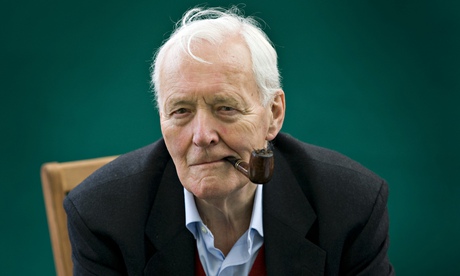
On the eve of his death, Tony Benn was fully aware of how he had been repackaged by the establishment. He was now a national sweetheart, a kindly old harmless gentlemen, sanitised, stripped of any potential menace to the status quo. Even a Tory could smile sweetly when he spoke, with the sort of indulgent but warm expression one reserves for a grandparent when they’re “going off on one”. Benn’s response to an audience of wellwishers was defiant: “I may be old, I may be kindly, I may even be a gentleman, but I am not harmless.” They would roar back their appreciation, applauding and whooping. But Benn’s transformation into a lovable purveyor of eccentric, but harmless, views had a subtext: the left is dead, and it is not coming back.
The film Tony Benn: Will And Testament is a rather moving look back at a rare politician who defied the cliched “moving rightwards with age” script. Benn was a man with three phases. First, he was the war veteran who became a mainstream, rather technocratic Labour politician, and seen by some as a future party leader. Benn helped front Labour’s 1959 general election campaign: in one election broadcast, he spins around in his chair, before informing viewers that “Britain belongs to you”. The future trajectory of his then-Labour colleagues in the broadcast underlines what a unique path Benn took: Christopher Mayhew crossed the floor to the Liberals in 1974, while Woodrow Wyatt would end up as a fervent Tory supporter of Margaret Thatcher and Rupert Murdoch.
The second phase of Benn’s career should stand as a reminder to anyone who has both the fortune and misfortune to be judged a sufficient threat to the status quo. This was the Benn who was demonised as the “Most Dangerous Man in Britain”, whose rubbish was emptied and whose children were abused in the street. Benn “immatures with age”, was the condescending judgment of Harold Wilson, one of the Labour leaders under whom Benn served. This phase would begin to draw to a close with what turned out to be the peak of Bennery: Benn’s near-victory in the Labour deputy leadership contest of 1981. And then Benn’s fate was tied to that of the left: as the trade unions were battered, the new right triumphant, the end of the cold war announced as the final victory of free market capitalism, and globalisation portrayed as leaving even modest social democracy redundant, Benn was no longer seen as a threat. A kindly old harmless gentleman, if you will.
But if you were – like me – a teenager growing up in the 1990s, a time of “neo-liberalism is the only game in town, suck it up”, it is difficult to overstate what a reassuring presence Benn was. However smothered the left seemed to be, Benn presented – at least in public – an unbending optimism. Last November, I chaired an “in conversation” with Tony Benn event at the Bishopsgate Institute. He was frail, lacking the fire he once had, but still lucid and passionate. It felt like a public farewell, as it turned out to be. But as he told the audience – as he always did –social change had two prerequisites: the burning flame of anger at injustice, and the burning flame of hope at a better world. Will and Testament is a fine memorial for a politician who really believed injustice was not a permanent feature of human existence, but an aberration that could be removed. Benn wanted his legacy to be that he encouraged: I suspect he will do just that for many years after his passing.
• This article was amended on 7 October 2014 because an earlier version said: “it is difficult to understate what a reassuring presence Benn was”.

